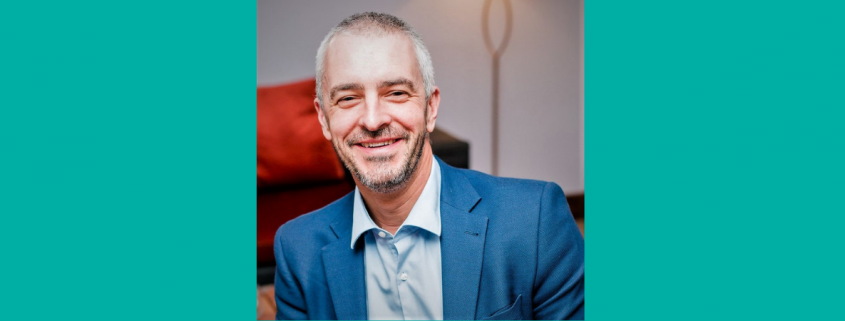Why?
You can’t end rough sleeping with a temporary solution. Even during an international pandemic when the doors to hotels and other forms of accommodation were opened, some people still feared the system that was supposed to help them so much that they chose to remain on the streets.
Supported and temporary accommodation doesn’t cut the negative cycle of people returning to the streets and services. In 2020/21 at the height of the pandemic and the ‘Everyone in Campaign’, London saw more people returning to rough sleeping than it had seen in the last four years. This equated to nearly four people every single day, returning from services and systems that had failed them – this figure shockingly makes up a third of the total. (Greater London Authority (GLA), Rough Sleeping in London, Chain Annual Report, Greater London, April 2020 – March 2021)
“I do know a few people that didn’t want to go inside. Being on the street is a desperate thing, it’s not a choice.”
Sam, rough sleeping on Oxford Street, Wisdom from the Pandemic
Council responses to a freedom of information request by the charity Shelter suggest only 23% of those helped through the ‘Everyone in Campaign’ had moved into settled accommodation – somewhere they could stay for at least six months – as of February. Shelter termed settled accommodation as accommodation where people had a right to be. So rightly, forms of temporary accommodation such as supported accommodation, hostels and those staying with friends or family were not included. (Shelter 2021, Everyone In: Where are they now?)
Everyone In was a phenomenal response to an international health crisis, it was not a sustainable response to a national rough sleeping crisis.
Mayday Trust’s latest listening enquiry, Wisdom from the Pandemic (carried out in London during July and August in 2020), clearly demonstrates that, for some, the COVID response resulted in a fresh start, an opportunity for people to move on with their lives. However, for others it was another example of the system failing; people being pushed into large hostels and shared accommodation, people expressing feelings of being out of control, scared and isolated.
“COVID has brought my life together and I’ve been handed help that I never got before…. I’m 68 years old and have been on the streets 5 years.”
Kareen, outside the Portrait Gallery, Wisdom from the Pandemic
“Living in a hostel is no life. It doesn’t help me with my depression. The atmosphere feels like a graveyard in there.”
Gemma, outside Joe and the Juice on Oxford Street, Wisdom from the Pandemic
“I’m being told I have to go to a hostel; I really don’t want to go. I know I will relapse. Everyone there takes drugs. I’m trying to stay sober but they are forcing me to go.”
Richard, begging on Victoria Street, Wisdom from the Pandemic
Negative experiences of living in temporary accommodation, such as hostels, are supported by a report carried out by the New Economics Foundation (NEF), which found that people living in insecure accommodation experienced worse or diminishing positive outcomes when compared to those with secure accommodation, who were given the opportunity to live independently.

Respect and dignity are protected under the Human Rights Act 1998 and are absolute necessities for supporting people through tough times
So, what should we be doing?
Dignity and respect should not be a luxury afforded to those that society deems worthy. Counter to this, those going through the toughest of times benefit most from being treated as people, rather than problems.
The answer to ending rough sleeping is not more money, but to think of ways to reduce service intervention and service dependence. Further investment into an already expensive system that isn’t working, into hostels and supported accommodation that people do not want to live in doesn’t make sense. This is why we must move away from commissioning into siloes for problems and into commissioning for people. If you have met a ‘rough sleeper’, you have met one ‘rough sleeper’, each person wants and needs something different, we must develop a system that affords the same choice, autonomy and access that you and I expect for ourselves.
“I’ve become more independent in a way of I can do more things for myself rather than other people doing them. I feel happy with my family environment.”
Interviewee working alongside a PTS Coach, NEF Report 2021
The report by NEF includes an in-depth analysis of what happens when you respond to people going through tough times such as homelessness in an entirely different way using the Person-led, Transitional and Strength-based (PTS) Response. Choice underpins this. Instead of being forced down set pathways, people were able to choose the support they wanted at a time that worked for them. The focus was placed on people’s strengths, passions and interests, rather than problems. People were encouraged, rather than ‘fixed’.
The research from NEF shows a correlation between being treated with dignity and respect and a person taking positive actions. When an environment was created where people had choice and control over their lives people reported that they felt encouraged to achieve their goals. Still, importantly they did not feel pressure to make changes faster than they were ready to. Furthermore, in direct comparison to other services, respondents described their PTS Coach as speaking to them, “like a human being” and meeting them “where they were” (physically, as well as mentally), rather than having to jump through hoops to get something done. As a result of this, people were able to progress positively with their lives in a sustainable and independent way.
“The way he encouraged me then is still with me now. And I still intend to get on the courses I had planned. He’s given me the determination to do it and the belief in myself that I will get this sorted.”
Interviewee working alongside a PTS Coach, NEF Report 2021
“They don’t judge you on your past. It’s about what you are now and where you want to go forward.”
Interviewee working alongside a PTS Coach, NEF Report 2021
The media and wider societal perception of homelessness, as well as the relationships between people accessing support and those offering the support, are also key to positive change. Mayday’s Wisdom from the Pandemic heard that many people felt that they were seen as subhuman, a problem or weak, when people found out they were rough sleeping.
“It was as if we weren’t human. Homeless people are not seen as human and no one cares about us.”
Mo, Trafalgar Square, Wisdom from the Pandemic
“Before we weren’t important, left outside. Then all of a sudden we’re in. It’s only because they thought we might make them sick. As long as they’re ok.”
Faye, Embankment Station, Wisdom from the Pandemic
When the focus is put on building a positive relationship with people, something which is often seen as a luxury in the current Social Care system, positive change can flourish. During interviews carried out by NEF, people working alongside a PTS Coach described their relationship as trusting, empowering, supportive and non-judgmental. Respondents explained they felt heard, and the relationship had a good impact on their well-being and confidence. The data backs this up, those that positively engaged with a PTS Coach improved their life satisfaction scores to that of the national average, up from before they worked alongside a PTS Coach.
“I’m not so moody all the time. I can do more stuff because I’m more confident and happier.”
Interviewee working alongside a PTS Coach, NEF Report 2021
“I like me a bit more. I’m a bit kinder to myself. I don’t blame myself when it isn’t necessary.”
Interviewee working alongside a PTS Coach, NEF Report 2021
“I have full responsibility for my life now.”
Interviewee working alongside a PTS Coach, NEF Report 2021

A practical response to the Housing Crisis
What action can we take?
Finally, we must consider housing, we cannot escape the fact that there is insufficient, genuinely affordable housing available to people that need it. A medium-term option could be to improve access to private rented accommodation. Shelter stated for a briefing in this very Hall in 2019:
“Firstly, the government must immediately lift the freeze on Local Housing Allowance (LHA) and restore rates to at least the bottom 30th percentile of the market. Secondly, the government must invest in significantly more social housing.”
The government listened two years ago and did restore rates. However, they have immediately frozen again and people are now having to live with the negative consequences of this with limited accommodation options and landlords being forced to evict tenants as their LHA doesn’t cover the cost of rent. People going through tough times continue to experience these challenges, so why are we not removing the benefit cap, removing shared room allowances and making the LHA fit for local purpose.
“I don’t get violent no more. I don’t get angry. I don’t get put in them situations now I have my own flat. I’m not aggressive I’m happy. I have safety. I have a secure home. I only let in who I chose to let in.”
Interviewee working alongside a PTS Coach, NEF Report 2021
The standard of living accommodation, rogue practices of landlords and inappropriate living solutions are yet more barriers that people going through tough times have to overcome. What would happen if we strengthened laws around the prosecution of rogue landlords, putting a stop to continuous reoffending and allowed people to freely choose where they live? Perhaps people would have a better experience and would be able to move forward with their lives.
“They gave me a room in a hotel. It was miles away. I was lonely, everyone I know is here. I didn’t know what was going on, how long I was going to be there, so I came back here.”
T, Westminster Tube Station, Wisdom from the Pandemic
“They’re talking about moving me on to private rented but I don’t want that, I want a studio council flat. You hear bad stories about private, it’s expensive and there’s no stability. If a landlord decides to sell you have to leave. I want a council flat for the stability.”
Ivano, Waterloo Bridge, Wisdom from the Pandemic
So what next?
We must see a commitment from this government to explore new ways of commissioning services, pushing local authorities to respond to their communities and their constituents and no longer commissioning services based on what funding stream they can apply for or what problems they wish to fix. People going through tough times must be able to decide what support they want and need and the state has to be ready to respond.
All public references should be linked, but if you spot anything please let us know.
Watch the Westminster Hall Debate on Rough Sleeping (Wednesday 8th September 2021) here









